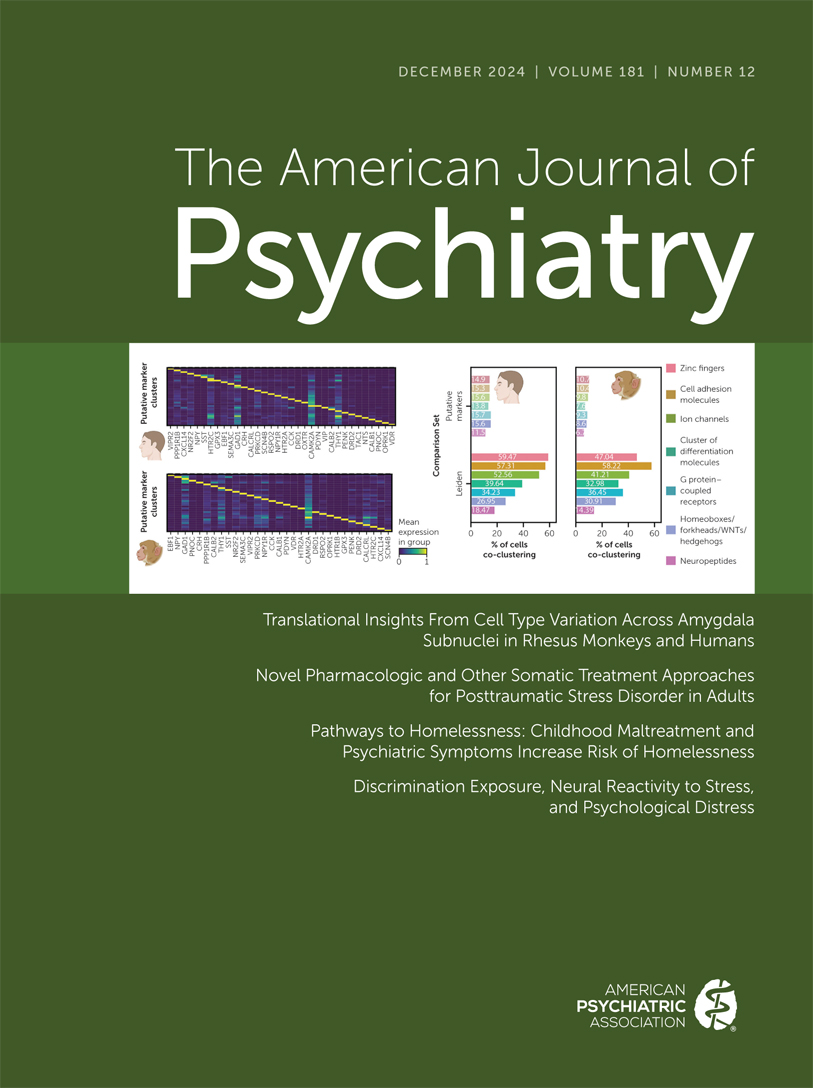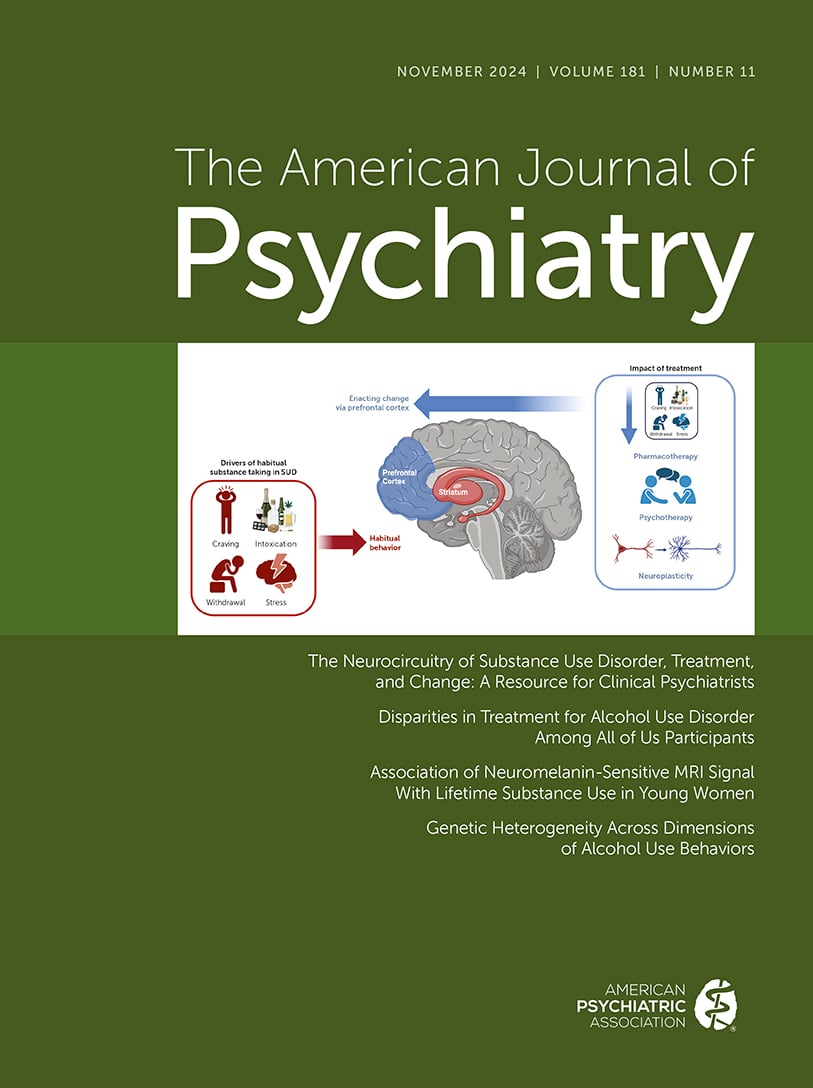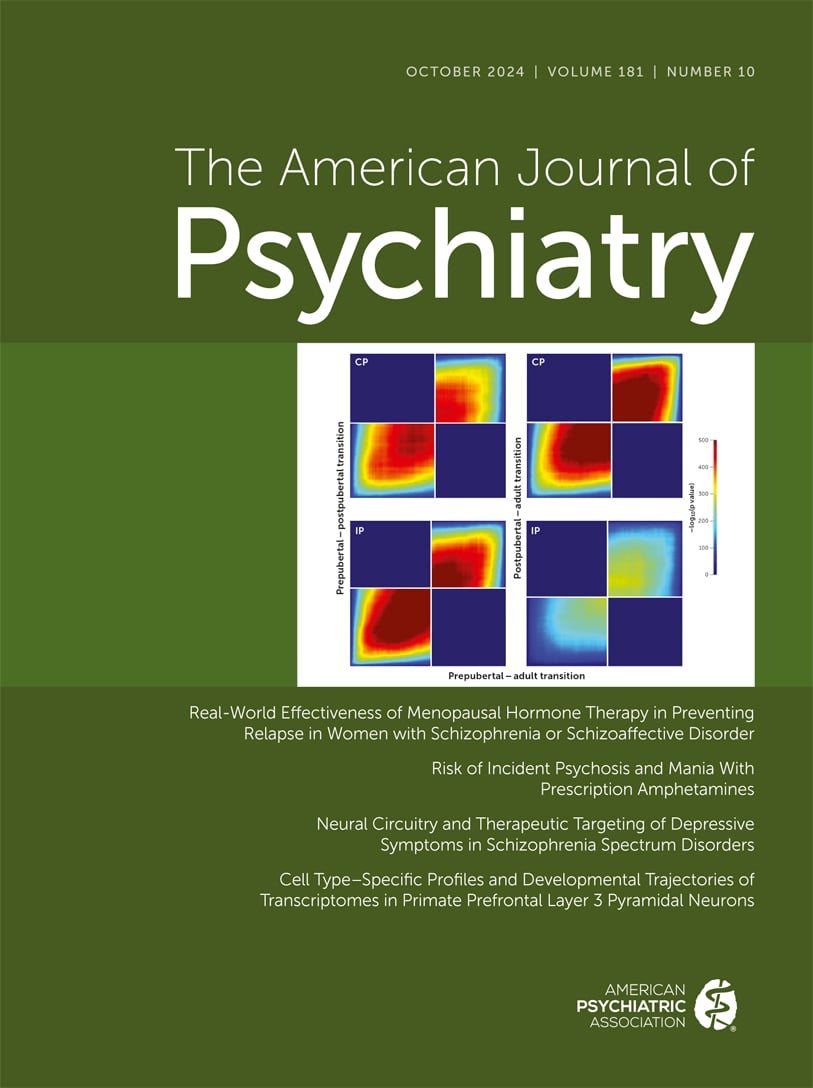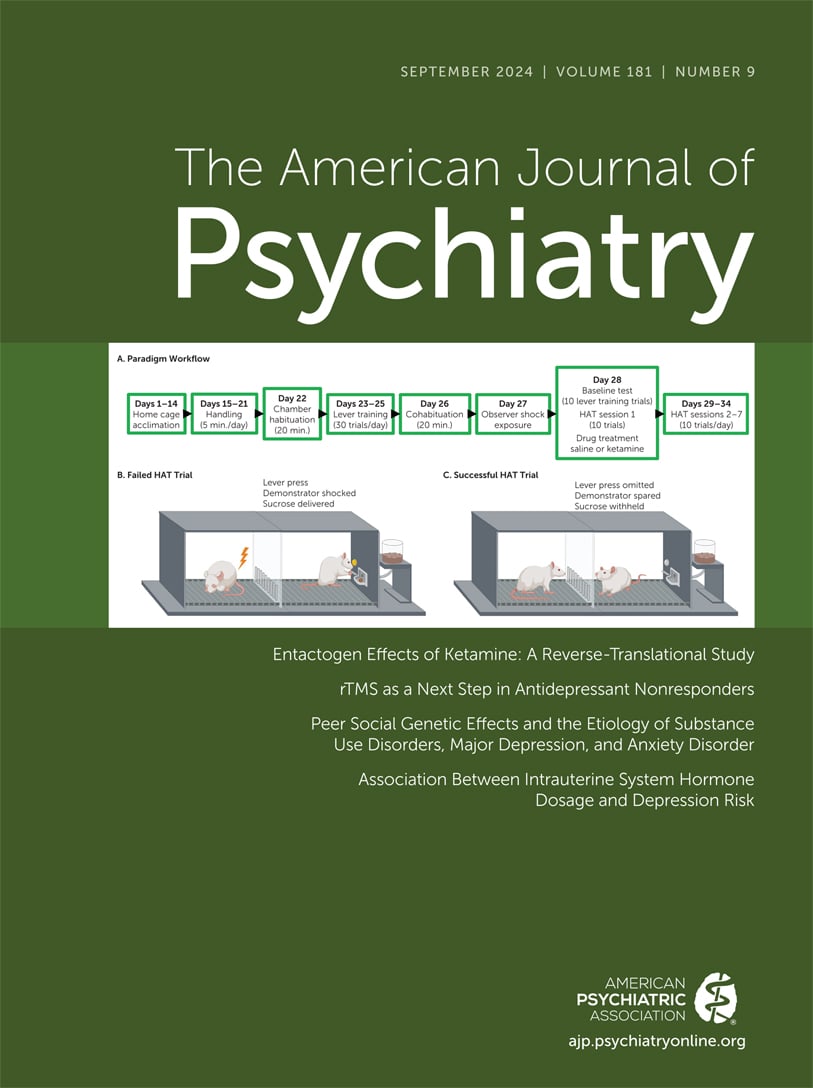American Journal of Psychiatry
- Volume 166
- Number 2
- February 2009
In This Issue
Editorial
Commentary
Treatment in Psychiatry
Images in Psychiatry
Reviews and Overviews
Publication date: 01 February 2009
Pages152–163Objective: Whether there are differences in efficacy among second-generation antipsychotics in the treatment of schizophrenia is a matter of heated debate. The authors conducted a systematic review and meta-analysis of blinded studies comparing ...
https://doi.org/10.1176/appi.ajp.2008.08030368Article
Publication date: 01 February 2009
Pages164–172Objective: Treatment-emergent mania can have substantial negative impact on overall mood and psychosocial stability in patients receiving treatment for bipolar depression. This study examined the correlates associated with treatment-emergent ...
https://doi.org/10.1176/appi.ajp.2008.08030322Publication date: 01 February 2009
Pages173–181Objective: Little is known about how often bipolar depressive episodes are accompanied by subsyndromal manic symptoms in bipolar I and II disorders. The authors sought to determine the frequency and clinical correlates of manic symptoms during ...
https://doi.org/10.1176/appi.ajp.2008.08050746Publication date: 01 February 2009
Pages182–188Objective: Research that seeks to enroll noncompetent patients with Alzheimer’s disease without presenting any potential benefit to participants is the source of substantial ethical controversy. The authors used hypothetical Alzheimer’s disease ...
https://doi.org/10.1176/appi.ajp.2008.08050645Publication date: 01 February 2009
Pages189–195Objective: Cognitive deficits are prominent in schizophrenia. Patients have an average score one standard deviation below normal on a broad spectrum of cognitive tests. It has been repeatedly noted, however, that 20%–25% of patients differ from ...
https://doi.org/10.1176/appi.ajp.2008.08020258Publication date: 01 February 2009
Pages196–205Objective: The purpose of the present study was to characterize the association between clinical symptoms and anatomical and functional cerebral deficits in a relatively large sample of antipsychotic-naive first-episode schizophrenia patients ...
https://doi.org/10.1176/appi.ajp.2008.08020183Publication date: 01 February 2009
Pages206–215Objective: The study of ethnically homogeneous populations may help to identify schizophrenia risk loci. The authors conducted a genomewide linkage scan for schizophrenia in an Indian population. Method: Participants were ...
https://doi.org/10.1176/appi.ajp.2008.08030442Publication date: 01 February 2009
Pages216–225Objective: Although amygdala dysfunction is reported in schizophrenia, it is unknown whether this deficit represents a heritable phenotype that is related to risk for schizophrenia or whether it is related to disease state. The purpose of the ...
https://doi.org/10.1176/appi.ajp.2008.08020261Publication date: 01 February 2009
Pages226–233Objective: Although olfactory deficits are common in schizophrenia, their underlying pathophysiology remains unknown. Recent evidence has suggested that cAMP signaling may be disrupted in schizophrenia. Since cAMP mediates signal transduction ...
https://doi.org/10.1176/appi.ajp.2008.07071210Letters to the Editor
Correction
Letters to the Editor
Correction
Book Forum
Books Received
APA Official Actions
Past Issues
View Issues Archive
Vol. 181 | No. 12

Vol. 181 | No. 11

Vol. 181 | No. 10
